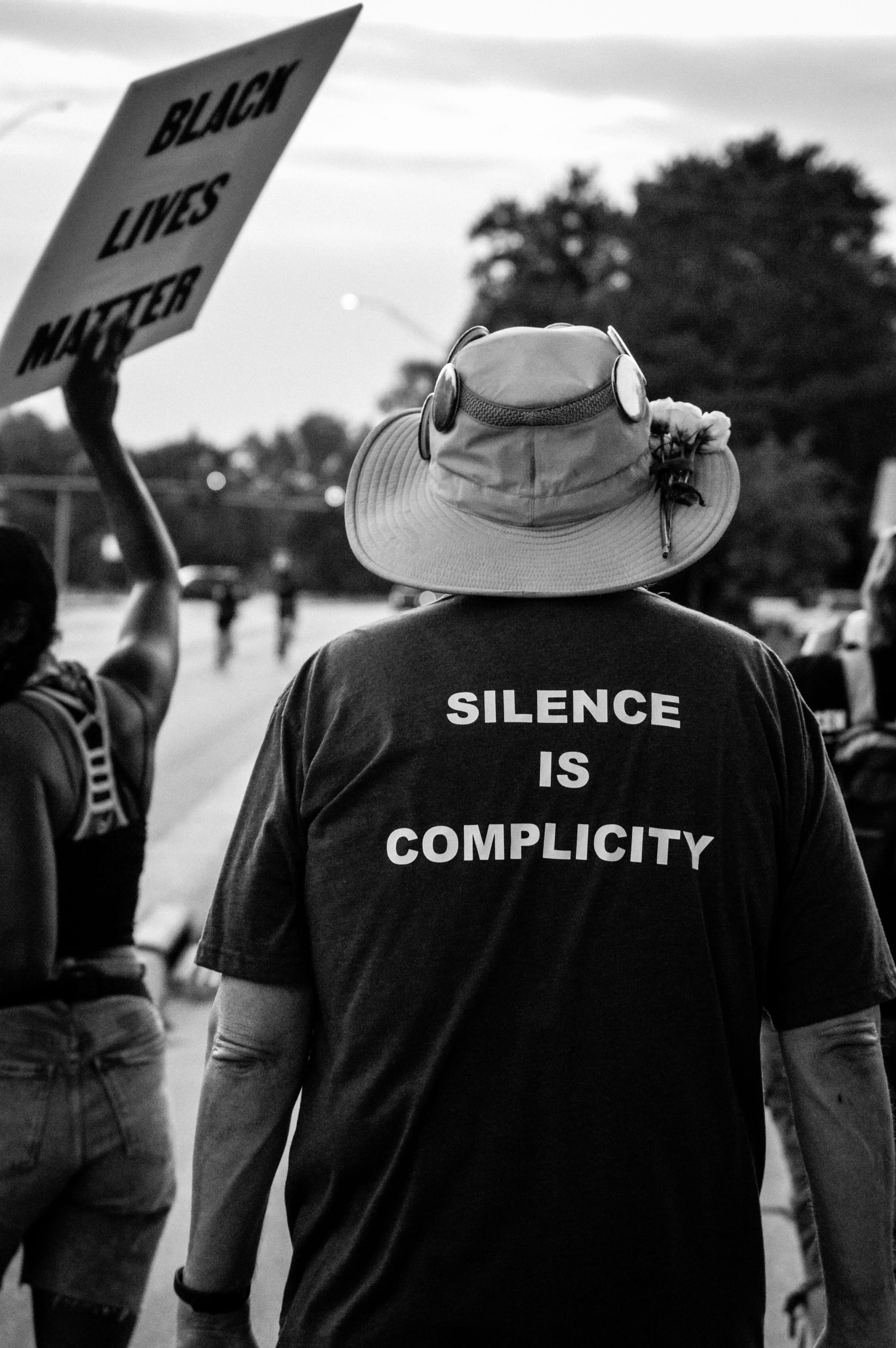Thoughts: Speak up, or no?

A friend who often cares for her grandchildren after school asked me recently what I thought about a family exchange (which I will fictionalize to avoid invading privacy). One day, she was invited to stay for dinner with the kids and her daughter (Dad was out that night). At the dinner table, the daughter asked one of the grandkids to change a behavior. Grandma verbally backed her daughter up. Daughter responded irritably with, “I don’t want to co-parent with you.” This response left Grandma aghast: She thought her comment provided support—support she had greatly wished she received from her own mother, who was critical of her parenting. Silence, to her, felt as if she had been erased from the family picture (like she was “sitting there like a dolt”). To her daughter, her comment constituted interference with her parenting. Would silence have been better?
When should I speak up?
It can be hard to decide when to speak and when to remain silent. The choice is entangled in practical details: How important is the circumstance to be spoken about—life-threatening, trivial, long-term, one-off? What’s the relationship like between the speaker and the one spoken to—generally warm, hostile, unpredictable? How expert is the speaker, and the one spoken to—experienced, half-informed, merely opinionated? Has the speaker thought through the topic, or are they reacting in the moment? What’s the emotional overlay—caring, anger, family history? What’s the intended effect of the words? How’s everyone’s mood? The circumstances under which we choose to speak or remain silent vary endlessly.
To look for some guidance through this, let’s take a step back to consider the pros and cons of speaking and silence generally. First, some pros of silence (simultaneously cons of speech):
The ancient Greek Stoics and their modern counterparts advocate being slow to speak. Pausing before speaking, they suggest, allows time for reflection, and prevents people from making hasty or impulsive comments or decisions. Moderating speech over the long term encourages well-considered actions and builds self-sufficiency. By opening space for listening (rather than filling the space with one’s own talk), staying silent also tamps down pride and arrogance, and cultivates considerate regard for others. Many religious and spiritual disciplines also recommend reverential or meditative silence to create space to listen, learn, and grow.
Second, some pros of speech (simultaneously cons of silence):
There is a not-so-fine-line between being silent and being silenced. A lot of women readers will remember work meetings at which a male colleague got credit for something they said (their voice being effectively silenced). Philosopher Kristie Dotson, writing from her perspective as a black woman, describes the “epistemic injustice” of silencing—the ways in which your knowledge, even about your own situation, is quashed by social expectations and prejudices, so that what you know to be true isn’t heard even when you choose to speak. (And your silence is preferred.) If you’ve been raised to be silent and have found your voice, tamping it down again can be painful (or worse).

And there is often a profound duty to speak. Martin Luther King, Jr., in his speech “A Time to Break Silence” against the Vietnam War, said, “…We must speak with all the humility that is appropriate to our limited vision, but we must speak…We are called to speak for the weak, for the voiceless, for the victims of our nation and for those it calls ‘enemy’ for no document from human hands can make these humans any less our brothers.”
One thing to notice is that all of the perspectives I just discussed can simultaneously be good guides toward when to speak and when to keep silence. These perspectives suggest that we need to speak at certain points, and that the better judgment is to remain silent at others. The Buddha said of a “well-spoken word” that it has five characteristics: “It is spoken at the right time. It is spoken in truth. It is spoken affectionately. It is spoken beneficially. It is spoken with a mind of good-will.” In other words, yes, speak, IF you choose a time to speak in which what you have to say is important and can be heard; you have your facts right; you speak gently, and with kindness or love; and you aim at a good outcome.
So what would these say about whether the grandmother should have spoken as she did? She gets a solid “go ahead” with respect to affection and good will. She probably has the facts right, too—although there may be history to the daughter-grandchild interaction she is not aware of. But what about timing? For example, did her daughter have an especially bad day? Or was the moment fraught? Perhaps there is a different time or place she could commend her daughter’s parenting. And how about speaking beneficially? The grandmother definitely intended that her expressed support have a good effect (that’s her good will). But how likely is a good effect in this situation? Notice that what she said involves a (positive) judgment of her daughter’s actions. I’m going to hazard that when words contain any judgment at all—good or bad—silence is usually more welcome by the one spoken to than speech is. Why? Most of the negative judgments will be unwelcome (although sometimes one will “land” properly and end up being very useful). And while some positive judgments are welcome, positive judgments can also backfire, mostly by making people feel they are observed in ways they don’t want to be (“You’ve lost weight!”). On balance, then, it seems to me these considerations suggest staying quiet in the moment.
This conclusion, of course, depends very much on very specific circumstances. Other circumstances cry out for breaking silence—especially those times when one is silenced, or when one is “called to speak for the weak, for the voiceless.”* Hopefully, your grandchildren will never be the weak and voiceless who need your voice—but they could be.
Preparing to listen
I hope for myself that when the tables are turned and our adult children need to make some judgments on our behalf—“Mom, I think you shouldn’t be driving anymore,” “Dad, I’m worried about your drinking”—they, too, can choose well when to speak up. That way, we’ll be able to hear their words as respected adult to respected adult, filled with the thought and care that went into broaching the subject.
*It so happens that the grandmother in the example makes herself heard in this way—kudos to her!